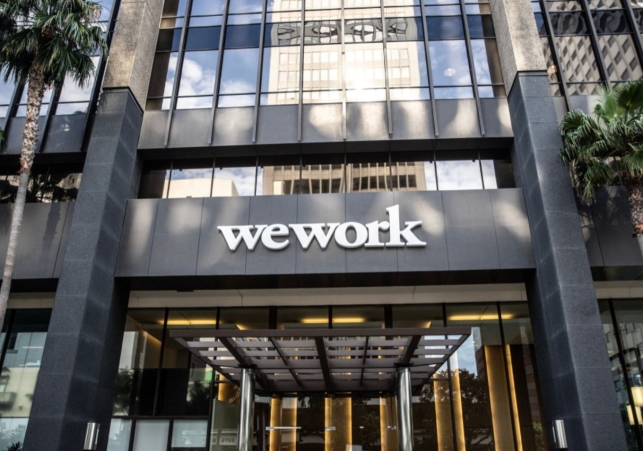
WeWork, once a titan, files for bankruptcy with massive debt
WeWork, formerly America's most valuable startup, declares bankruptcy with $10-$50 billion in liabilities
WeWork, a once high-flying startup backed by SoftBank, filed for bankruptcy in the United States. The company's fortunes declined due to unprofitable leases and clients' shift to remote work.
The move represents an acknowledgment by SoftBank, which owns the majority of WeWork, that the company cannot survive without renegotiating its expensive leases through bankruptcy.
WeWork has struggled to achieve profitability as it grapples with costly leases and clients canceling agreements due to remote work. In the second quarter of 2023, 74% of WeWork's revenue was spent on space-related expenses.
ALSO READ: Russian hockey star threatens to blow up plane over denied vodka
Liabilities range from $10 Billion to $50 Billion
The company reported assets and liabilities ranging from $10 billion to $50 billion in its bankruptcy filing. WeWork may use provisions of the U.S. bankruptcy code to relieve itself of burdensome leases, according to law firm Cadwalader, Wickersham & Taft LLP. Some landlords are preparing for the potential impact.
Under its founder Adam Neumann, WeWork became the most valuable U.S. startup, worth $47 billion, with investments from major players like SoftBank, Benchmark, and JPMorgan Chase. However, Neumann's pursuit of rapid growth at the expense of profits and eccentric behavior led to his departure and a failed IPO in 2019.
ALSO READ: Extraordinary alien Solar System unveiled: seven Planets larger than Earth
Impact of the Pandemic
The COVID-19 pandemic exacerbated WeWork's challenges, as office workers stayed home. Although the company renegotiated hundreds of leases to save billions, it couldn't overcome the pandemic's impact. Competition from traditional landlords offering flexible leases further strained WeWork's situation.
Sandeep Mathrani and David Tolley successively assumed the role of CEO, and the company engaged in debt restructurings. Despite these efforts, WeWork was unable to avoid bankruptcy. Last week, the company secured a seven-day extension from creditors on an interest payment to continue negotiations. WeWork's bankruptcy marks a significant turn in its trajectory, from being a disruptive force in office space to grappling with financial challenges and a changing business landscape.





